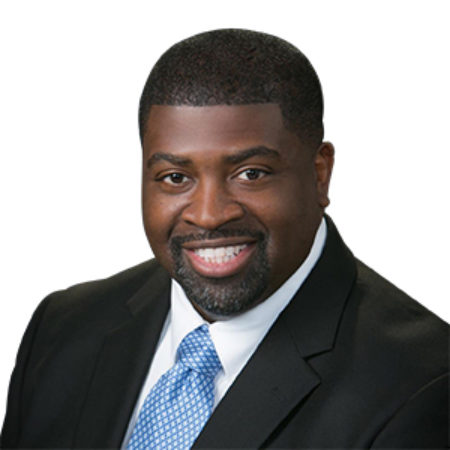Facility management firms often fear working with organized labor for various reasons. There are often erroneous and ill-based perceptions of how facility management and the workforce can engage each other, which can lead to labor-management disputes.
Oftentimes, management decries or expresses the prohibitive nature of the labor-management relationship, stating that it cannot operate efficiently or respond to its business needs because of the third-party union representatives. In response, union representatives charge that management’s failure to listen to the union or plan for foreseeable operational obstacles should not cause its membership to suffer. This is the crux of the angst between the union and management, and it is not highlighted greater than it is with facilities management providers.
Infamous American labor leader Jimmy Hoffa, President of the Teamsters Union stated: “I’ve said consistently that no employer ever really accepts a union. They tolerate the unions. The very minute they can get a pool of unemployment they’ll challenge the unions and try to get back what they call managements prerogatives, meaning hire, fire, pay what you want.”
In spite of this statement, facility management firms need not fear working with organized labor. The fear of a labor contract restricting its ability to manage its business affairs is incorrect. However, having a union relationship will require the facility service provider to hire stronger, more competent managers with the interpersonal and organizational skills to run a fair and efficient operation.
With that in mind, here are several suggestions to ensure your operation has the management in place to handle a successful union relationship:
Hire the Right Leader
Facility management firms struggle with hiring experienced managers to run operations with labor-management experience. Oftentimes hiring managers working for facility service providers will see “union experience” on a management candidate’s resume and assume they will be great at managing those relationships. However, this resume line doesn’t necessarily guarantee the candidate was successful in that role. Remember: The goal is to reduce liabilities from improperly managing the contract that lead to costly grievances and arbitrations.
Initiate Collaboration
Regardless of whether employees are in-house or outsourced, the engagement between labor and management should be collaborative and inclusive. Labor employees must feel valued, and in the same instance, be held accountable to demonstrate their value to the employee-membership and to the employer in the execution of the services.
Unions that are relegated from the labor-management table feel no obligation to assist or work with management when it needs flexibility on issues. And likewise, union representatives who attempt to manage operations rather than represent the members or oversee the agreement can cause problems, as they tend to confuse operational matters based on their own preference of how processes should go, and not whether the contract can reasonably allow the employer to do what it intends.
In most cases, the only time that labor and management interact it is to resolve a problem. If training hasn’t been implemented to clarify responsibilities, the conversation can evolve into a confrontational debate, which is a zero-sum game—none of which is productive for either party and future interactions.
Facility management firms should engage union stewards and union representatives with joint training opportunities, meeting regularly to discuss trainings and changes in the marketplace that could affect business. Additionally, management should establish a joint labor-management committee, especially around the interpretation of a collective bargaining agreement.
Be Wary of Erroneous Client Comments
A proactive labor-management relationship serves well when the client decides to place the services out for bid to determine if the current contract is in line with industry standards. There is always a cost associated with changing facility vendors, and a proven strong relationship with organized labor only raises the cost of an employer to source if you are the incumbent.
During the bidding process, facility management firms are often told that maintaining the union relationship is no concern of the customer purchasing the facility management services. Be very wary of statements like this from the procurement team. Statements of indifference about keeping organized labor in place are often made in a vacuum and only will heighten angst or disrupt the bidding cycle if labor hears or confirms this sentiment as true on behalf of the district. If told this, take it with a grain of salt and prepare for an operation that includes some sort of organized labor. If the customer or prior vendor was unable to cancel the relationship, do your due diligence before you price your services around not having an organized labor team.
Be Mindful of Inherited Contracts
When facility service providers inherit union contracts from an ousted incumbent employer, the relationship usually starts off smooth with a lot of promises made by the employer of what the workforce and union can expect. There is a lot of interaction and engagement between labor and management during this transition phase. However, once the contracts are signed, relationship building typically does not continue. Each party goes back to its respective corner like in a boxing match, only to come out when the bell rings (or when a grievance is filed).
If your firm is hoping to unseat an incumbent, then your proven labor-management experience and relationships will help lower that cost to source in your case. Additionally, developing a proven training program and labor-management committee notwithstanding the size of the contract and/or employees is a proactive measure that will give your firm an edge over those that say they have good relationships with labor or are able to work around issues.
Hold All Parties Accountable
In conclusion, facility management firms can be successful with or without organized labor. The takeaway is this: If your firm plans to engage organized labor in its operation, know how to hold them accountable for providing value no different than your business entity is expected to deliver. Facility management firms also need to hire stronger leaders and offer joint trainings and meetings as a pattern of management around the execution of services to its customer.




